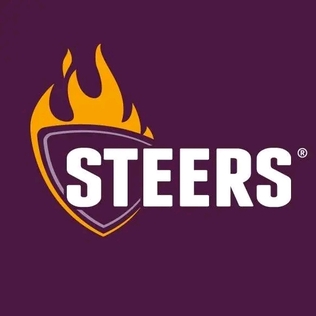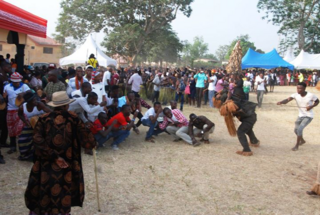Related Research Articles

Tanzania, officially the United Republic of Tanzania, is a country in East Africa within the African Great Lakes region. It is bordered by Uganda to the northwest; Kenya to the northeast; the Indian Ocean to the east; Mozambique and Malawi to the south; Zambia to the southwest; and Rwanda, Burundi, and the Democratic Republic of the Congo to the west. Mount Kilimanjaro, Africa's highest mountain, is in northeastern Tanzania. According to the 2022 national census, Tanzania has a population of nearly 62 million, making it the most populous country located entirely south of the equator.
Bukoba is a city with a population of 144,938, situated in the northwest of Tanzania on the south-western shores of Lake Victoria. It is the capital of the Kagera region, and the administrative seat for Bukoba Urban District.
Bongo Flava is a nickname for Tanzanian music. The genre developed in the 1990s, mainly as a derivative of American hip hop and traditional Tanzanian styles such as taarab and dansi, with additional influences from reggae, R&B, and afrobeats, to form a unique style of music. Lyrics are usually in Swahili or English, although increasingly from mid 2000s there has been limited use of words from Sub-Saharan African music traditions due to the influence of Afrobeats and Kwaito with their dynamics usage of West African Pidgin English, Nigerian Pidgin or other Creole language.

The East-Central Africa Division (ECD) of Seventh-day Adventists is a sub-entity of the General Conference of Seventh-day Adventists, which oversees the Church's work in portions of Africa, which includes the nations of Djibouti, Eritrea, Somalia, Ethiopia, Kenya, Tanzania, Uganda, Rwanda, Burundi, South Sudan and the Democratic Republic of the Congo. It was founded in 2003 and has its headquarters is in Nairobi, Kenya. Founded in 2003. The Division membership as of June 30, 2021 is 4,588,423.
The dozen Luo, Lwo or Lwoian languages are spoken by the Luo peoples in an area ranging from southern Sudan to western Ethiopia to southern Kenya, with Dholuo extending into northern Tanzania and Alur into the Democratic Republic of the Congo. They form one of the two branches of the Western Nilotic family, the other being the Dinka–Nuer. The Southern Luo varieties are mutually intelligible, and apart from ethnic identity they might be considered a single language.
The Akie are a Tanzanian ethnic and linguistic people living in south western Simanjiro District of Manyara Region. In 2000 the Akie population was counted at 5,268. The Akie, like other hunter-gatherer peoples in Kenya and Tanzania, are sometimes called by the derogatory and misleading term Dorobo or Wandorobo. The Akie were featured by Bruce Parry in the BBC series "Tribe". They live around 150 miles south east of Olduvai Gorge

Arusha Region is one of Tanzania's 31 administrative regions and is located in the northeast of the country. The region's capital and largest city is the city of Arusha. The region is bordered by Kajiado County and Narok County in Kenya to the north, the Kilimanjaro Region to the east, the Manyara and Singida Regions to the south, and the Mara and Simiyu regions to the west. Arusha Region is home to Ngorongoro Conservation Area, a UNESCO World Heritage Site. The region is comparable in size to the combined land and water areas of the state of Maryland in the United States.

Steers is a South African quick-service restaurant brand, serving burgers and chips. Other menu items include chicken burgers, ribs, ice cream, milkshakes, chicken and salads.

The Iraqw People are a Cushitic ethnic group inhabiting the northern Tanzanian regions. They dwells in southwestern Arusha and Manyara regions of Tanzania, near the Rift Valley. The Iraqw people then settled in the southeast of Ngorongoro Crater in northern Karatu District, Arusha Region, where the majority of them still reside. In the Manyara region, the Iraqw are a major ethnic group, specifically in Mbulu District, Babati District and Hanang District.

The Bende are a Bantu ethnic group based in the Mpanda District of the Katavi Region in western Tanzania. In 2009, the Bende population was estimated to number 41,290.
KCZ or kcz may refer to:
Konongo is a gold bar mining and manganese mining community located in Ashanti, Ghana. The town serves as the capital of the Asante Akim Central Municipal. As of 2012, Konongo has a settlement population of 41,238 people. Konongo is about 53 kilometres (33 mi) from Kumasi, the Ashanti capital.
Nyamwezi is a major Bantu language of central Tanzania. It forms a dialect continuum with Sukuma, but is more distinct from it.
Konongo may refer to:
Ilwana (Kiwilwana), or Malakote, is a minor Bantu language of Kenya.
Wanda is a Bantu language of Tanzania. It is considered a vulnerable language with less than 43,000 native speakers worldwide. At least half of Wanda people speak limited Swahili, one of the official languages of Tanzania. Speakers are particularly concentrated in Kamsamba ward in Momba District Council and Kipeta ward in Sumbawanga District.
Konongo and Ruwila constitute a Bantu language of central Tanzania that is closely related to Nyamwezi – close enough to sometimes be counted as a dialect of Nyamwezi. Ruwila was until recently quite poorly attested.
The Parakuyo people, are a community of about thirty thousand pastoralists who live scattered across Tanzania today. They are the principal speakers of the Kwavi language.
References
- 1 2 Roger. "Konongo of Tanzania". IMB. Retrieved 2024-07-08.
- ↑ Mutuku, Ryan (2024-04-18). "List of all tribes in Tanzania with their languages and home regions". Tuko.co.ke - Kenya news. Retrieved 2024-07-08.